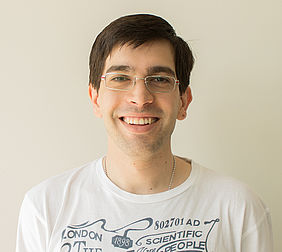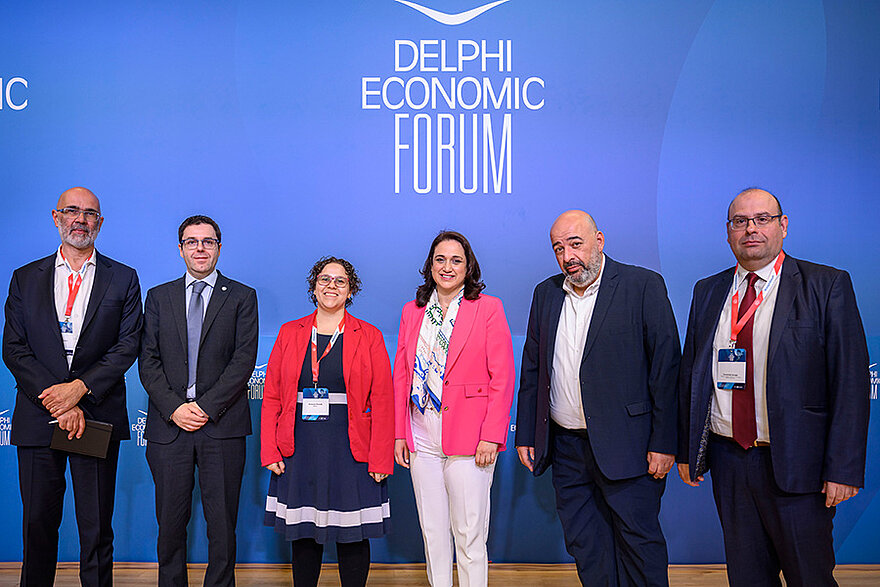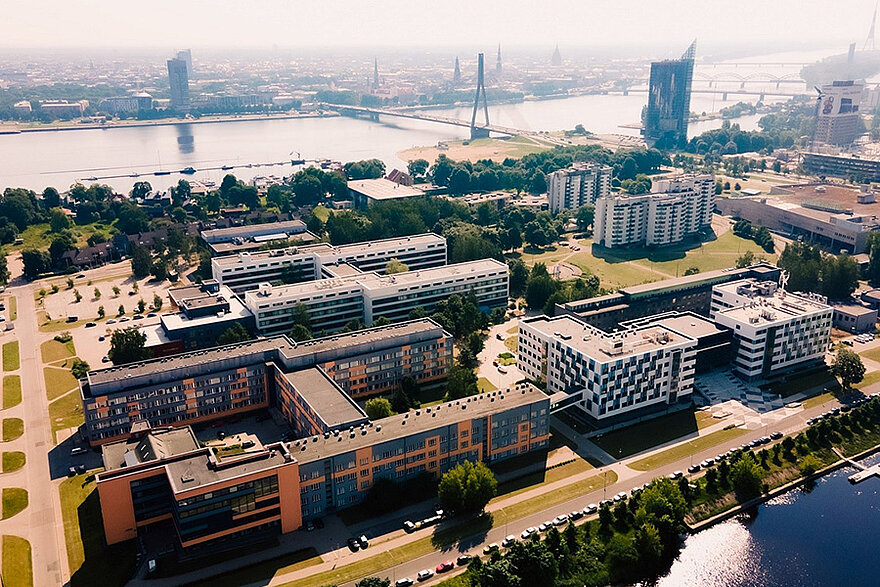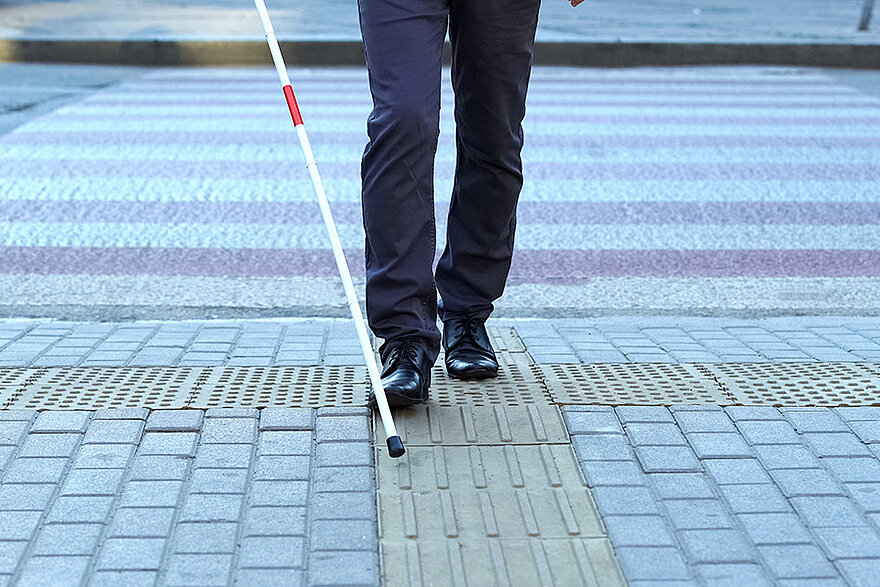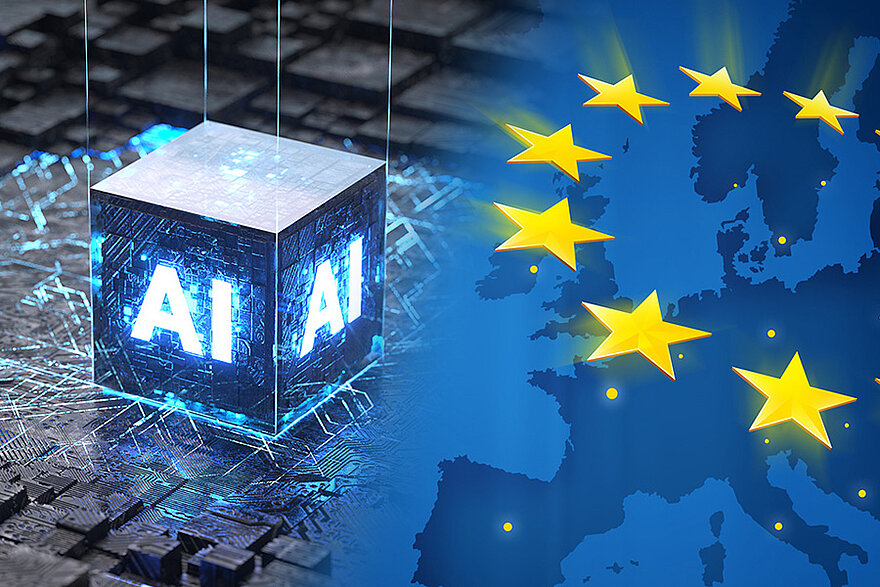"The people here learn how to make an impact"
Roberto Costumero Moreno is one of the first six EIT Digital Doctoral School students to come from Spain - and is going to graduate soon. "It has been a great experience." He looks back on an inspirational journey that taught him how digital technologies can improve society and the lives of other people. And he is proud to be playing his part.
It would have been logical for Costumero, to do an academic PhD at the Universidad Politécnica de Madrid (UPM), since he had already done his engineering studies in Computer Science there. The university, a partner of EIT Digital, proposed that he carry out his PhD at the EIT Digital Doctoral School instead. The fact that this would mean learning about includes knowing more about innovation and entrepreneurship, attracted the young engineer. "I had done some entrepreneurial courses already. The topic interests me and that’s why I decided to follow up on the tip." He started his PhD in October 2013.
Improve society
He never regretted his choice. Instead, he finds himself now with a broadened perspective and an inspiration to improve society. "The spirit at EIT Digital is wonderful. The people here learn how to make an impact on society. The EIT Digital open and innovative courses focus on expanding and growing potential businesses across Europe and beyond. Within EIT Digital we have the concept of a complete digital society. That society has no borders and this kind of thinking results in finding solutions that could help anyone, anywhere."
Broader perspective
He might not have acquired this kind of perspective had he followed a more logical route towards a PhD. "I come from a technical field and was very much focused on the technical side of things. I would have been even more technically focused in a normal PhD. Because of the business elements of the EIT Digital Doctoral School I have learned to relate the technical aspects to business, how to develop a business plan, how to get funding, and how to make the technology more understandable to other - not so technical - people."
Travelling
Learning, networking and travelling to the different courses and conferences are the first examples the engineer gives when asked what benefits the EIT Digital Doctoral School has. "I have done courses on Raising Awareness and Opportunity Recognition in Madrid with people from many different countries. I received a very warm welcome in Helsinki when I started the Business Modelling course and in Trento, I did a two-week course on Growth and Harvesting with people from Paris, Italy, Budapest and so on - one of the most interesting courses I have ever done. This creates many opportunities to learn how to grow a business globally and to create a valuable network."
Research
The goal of his research was to find a healthcare solution involving Big Data that benefits patients, doctors and hospital management. For this, he worked at the Data Mining and Simulation (MIDAS) research group at the Centre of Biomedical Technology of UPM. Also, he did a six-month internship (starting in November 2014) with the IBM Watson Multilingual Core Development Team in Dublin, which he found interesting. He learned about the latest technology in his field. His research has led to new techniques for Big Data and Natural Language Processing.
"These techniques aim to help doctors make better diagnoses which fit the patient’s symptoms and history, so the doctors will be able to give more accurate treatments. Patients will benefit because they get a better diagnosis and treatment so, their quality of life improves, and the hospital management will benefit from the savings of better treatment and the reduction of unnecessary tests or subsequent consultations."
According to Costumero, this is one of the first times that this kind of applied research could have an effect on society, people and contribute to improving our world. "The implementation of these methods in the day to day work of hospitals, doctors, and other professionals in the healthcare sector could have a tremendous impact on society and an economic impact on the hospital budgets."
Industry
With all this experience under his belt, he now wonders if he will stick to the academic world or look at a switch to industry. He will decide about his future, he says, after he finishes his six-month Business Development Experience at EIT Digital’s partner Telefónica. He will help this company, working with the Director for External Positioning and Big Data for Social Good, to develop projects benefiting society and positioning the company to help it become a more social enterprise. This work will be guided by the 17 sustainable development goals that the United Nations has proposed to solve the world biggest challenges.
"Telefónica has the money and the data. These are the two ingredients to make change possible and to give back to society. The data that comes from messaging and mobile connections can also be combined with other kinds of external data, for example from NGOs, in order to learn how the people in the world live and to see where we can innovate to make their lives better."
Graduation
The PhD candidate, born in Spain in 1986, is now in the final stage of writing his thesis about Big Data and Data Mining techniques applied to Healthcare and expects to be able to graduate by November. His PhD work has already led to several publications. The official graduation ceremony takes place in Spring 2018. In the meantime, he teaches courses as an assistant professor at UPM about databases, cognitive systems and data analytics.
